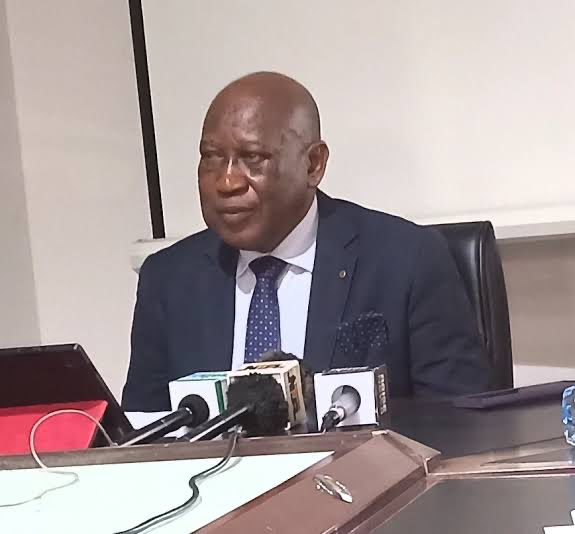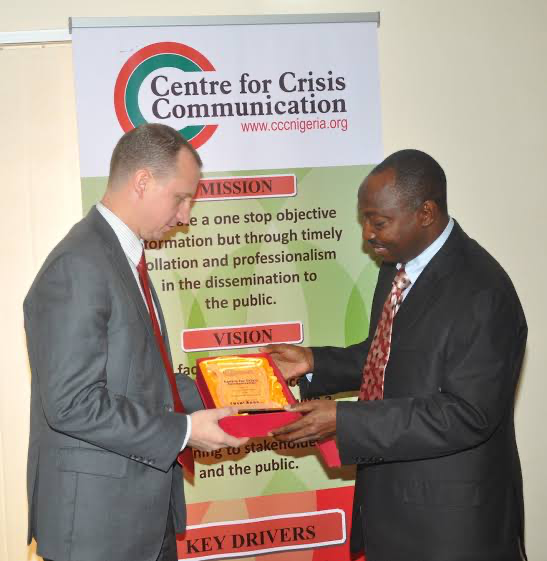Military Spending Not Wasteful — Gen. Olukolade Breaks Silence on War Costs
Retired Major General Chris Olukolade has pulled no punches. Speaking on Western Spring Television, the former Director of Defence Information laid bare the harsh realities of Nigeria’s military operations — from the billion-naira cost of a single air patrol to the controversial debate around intelligence failures in the fight against insecurity.
Speaking with the calm authority of a seasoned military officer, Gen. Olukolade tackled the controversial issue of defence spending head-on, insisting that while the figures may seem enormous, the actual cost of sustaining daily operations in conflict zones is even more demanding.
“It’s easy to imagine that the money is much,” he said, “but when you see the impact on the field, you’ll realise it’s not excessive at all.” To illustrate, he recalled a time when fuelling an Alpha Jet for a single short patrol cost almost a million naira — and that’s excluding maintenance, logistics, and manpower. “Now imagine how many of these patrols take place in a day,” he added.
The same applies to ground operations. According to him, even simply mobilising tanks for a few minutes in combat zones demands hundreds of litres of fuel, constant maintenance, and readiness support. “You feed the troops, move logistics, monitor communications — all of these add up. So, while the budget might look huge on paper, it barely covers the intensity of what’s going on in the field.”
Beyond operations, the conversation turned to military intelligence, a subject that often provokes public frustration due to repeated attacks across the country. The host didn’t hold back: “Military intelligence is failing, General. That’s the honest truth,” he declared, citing repeated attacks in the same regions within short intervals as evidence.
Gen. Olukolade responded with candour. While he acknowledged lapses, he was quick to point out that intelligence gathering is not solely a military affair, and that the process is more complicated than many realize.
“Everywhere in the world, there have been intelligence failures — even in the United States, with 9/11, or in Israel, on October 7. Intelligence is built on the analysis of available information. And information is not always complete. That’s why all agencies and even the public must contribute.”
He emphasized that effective intelligence relies on collective input from security agencies, local communities, and even civilians. “If there’s a failure,” he said, “then it’s not just the military that has failed. It means somewhere along the line, the information chain broke down.”
Asked what must be done, Gen. Olukolade called for deeper public engagement, better inter-agency cooperation, and increased investment in modern surveillance technology. “We must improve the system with technology, and we’re already working in that direction. But no matter how much technology we deploy, it won’t replace the role of the people in providing timely information.”
Pressed further about comparisons between Nigeria and other nations like the U.S., where intelligence agencies regularly foil major attacks, the retired General offered a sobering perspective. “It’s easier said than done. You can’t compare Nigeria’s capacity to the kind of resources available to American security agencies. Their investment in technology, equipment, and infrastructure is on another level entirely.”
He also challenged the notion that Nigeria’s enemies — such as terrorists and bandits — are “ragtag” groups. “Don’t be deceived. These groups may not be formal armies, but they are dangerous, unpredictable, and often supported by complex networks. They don’t play by the rules of engagement, and that makes them even harder to contain.”
Importantly, he stressed that successes by Nigeria’s intelligence community often go unnoticed, simply because they prevent attacks before they happen. “Many foiled attempts never make the news. It’s only when something slips through that people pay attention and start questioning intelligence.”
Still, the retired General acknowledged the need for constant improvement. “We are not where we want to be, but we are improving. And if we continue investing in intelligence infrastructure and getting the people involved, we’ll begin to see better outcomes.”
The interview ended with a clear takeaway: security is not just the responsibility of the armed forces or the intelligence agencies — it is a collective duty. Until this shared responsibility is embraced across the board, the cycle of blame and repeated attacks may never end.



